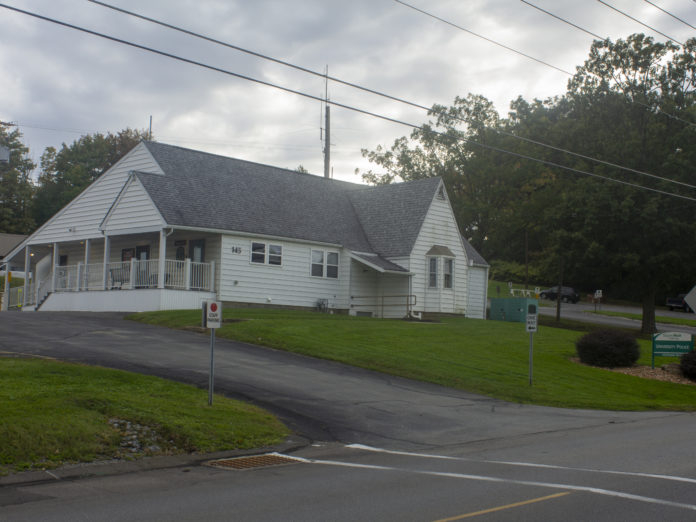As the weather gets colder and the Student Health Center’s hours shorten, the Slippery Rock University police are responding to an increased number of calls regarding mental health.
Since 2019, the Slippery Rock University Police Department has been sending officers to Crisis Intervention Team (CIT) training. The program was developed by the Memphis Police Department and emphasizes mental health knowledge, crisis resolution skills and access to community services.
The course also trains officers to handle citizens with developmental disabilities and veterans with post-traumatic stress disorder.
“We’re here to help,” Kevin Sharkey, chief of university police and director of the parking and ID office, said. “We’re a resource on campus. We can get (students) to the right people whether it’s on campus or off campus.”
The Westmoreland Economic Development initiative for Growth sponsors via grants the 40-hour training course and notifies the departments when it will occur. They hold the training about twice per year. Newly hired officers attend the next available class.
Instead of another officer or corporate entity, the training is provided by community mental-health professionals, family and consumer advocates and experts in related fields.
After implementing this program, communities have reported fewer injuries to police and civilians, fewer arrests, an increased number of health-care referrals and fewer calls for intensive police force like SWAT.
All but two SRU officers have completed this training, but all officers have completed mental health training other than CIT.
The SRU police have also undergone training for applied suicide intervention skills, public safety, tactics for military veterans in crisis, Overdose Information Network (ODIN) training, Naloxone training and Stop The Bleed certifications and more.
Naloxone training focuses on overdoses and opioids. Stop The Bleed is an interactive course that teaches officers three ways to control bleeding.
Officers are also expected to complete updates to their training courses as they come out. The Municipal Police Officers’ Education and Training Commission (MPOETC) started including mental health training in their updates last year.
Now that officers are getting the proper training, the university just needs more of them to train.
The SRU police are short four officers. They had six vacancies and filled two dispatcher positions. Sharkey said they are still providing the same police coverage they always have with officers working overtime to make up for the vacancies.
Police shortages have become common in the last few years. All the other PASSHE chiefs are also facing staff shortages, Sharkey said, and the unions are working on a fix. There are a few factors to consider for these shortages.
The average salary for police officers in the United States is $52,638 according to Zippa. Pennsylvania ranks 21st with officers making an average of $48,782. The median income for one person in Pennsylvania is $60,640 according to the U.S. Department of Justice.
In today’s political climate, the title of police officer also does not garner the same respect as it once did.
The SRU Police Department has been advertising in police academies and newspapers to bring in new recruits.
To become a police officer at SRU, applicant must have a valid driver’s license for prescreening and an Act 120 municipal certification. Act 120 is the basic training police officers complete in Pennsylvania.
After applying for the position, the applicant will receive a packet of about 36 pages for supplying background information. The department uses this to complete the preliminary background check before the interview.
The applicant also must pass physical and psychological evaluations.
The applicant’s name is then sent to the Pennsylvania State System of Higher Education’s (PASSHE) Human Resources, Employee Benefits and Labor Relations offices for final approval.
Once hired, the officer is on probation for one year and works with a field training officer (FTO) for their first nine weeks.
To become an FTO, “[officers] have to be here for a while and know everything in our department,” Sharkey said. They also must complete a 40-hour certification course.
There is an FTO on each shift so trainees can be rotated.
Police officers must also keep up with certifications like first aid, CPR, Act 180 and firearms training.
To be certified under Act 180, officers must complete annually 12 hours of in-service training which can consist of both MPOETC-developed training and Continuing Law Enforcement Education (CLEE) courses.
Officers must renew their firearms certification three times per year. The SRUPD has two instructors: Sharkey and Specialist Robert Martz. The training includes two day shooting sessions and one night session.
With public safety being a top priority, SRU President William Behre has said that police positions will not be reduced when discussing where to combine positions.








